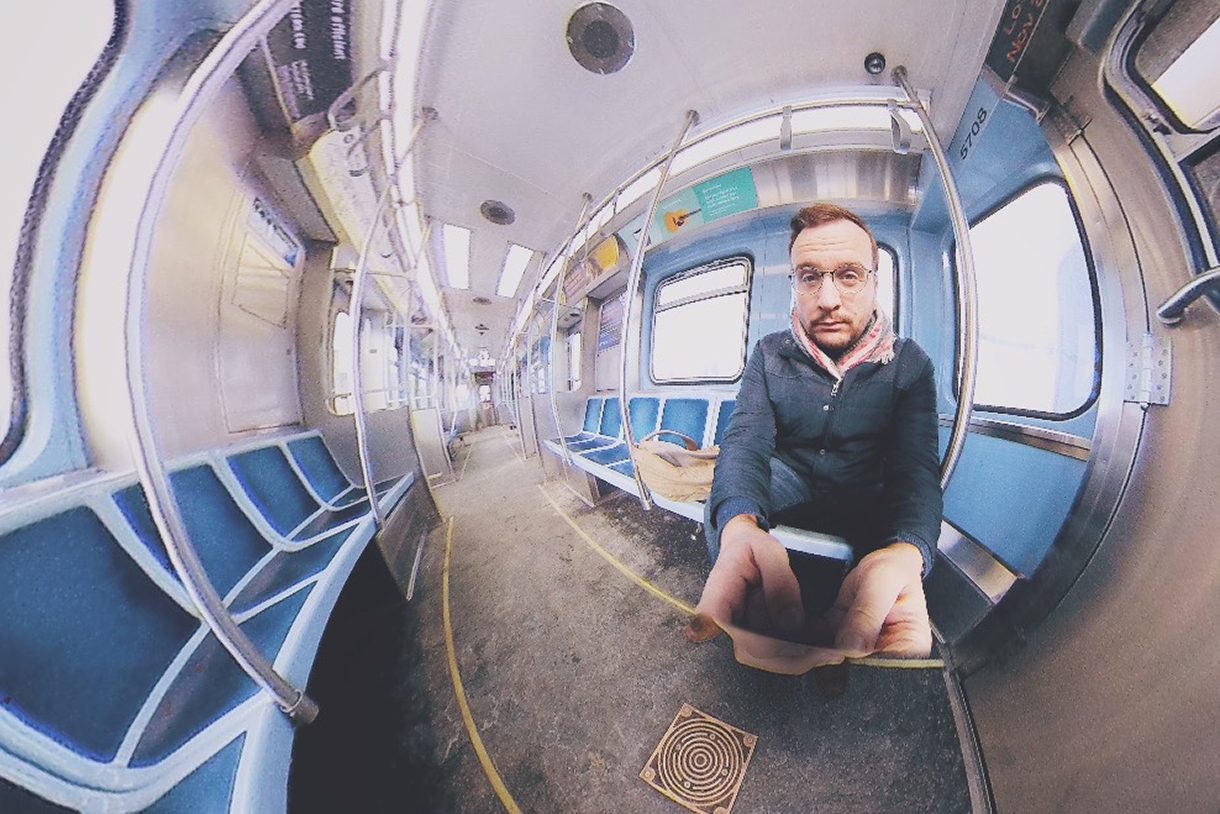From a Wild Zapper to Assistant Professor: How Matthew Andersen Found His Way to Columbia

After coming to the United States to study at Gallaudet University for a degree in art therapy, Assistant Professor Matthew Andersen found another opportunity he couldn’t pass up. He became a member of an ‘all Deaf male’ dancer troupe called Wild Zappers, as part of the National Deaf Dance Theatre. With the Wild Zappers, Andersen travelled the world and glimpsed local Deaf communities. An eye-opening experience, Andersen decided to pursue higher education and use his degree to facilitate positive changes in Deaf communities. Andersen left the Wild Zappers and enrolled at the Rochester Institute of Technology to finish his degree.
After graduating, Andersen moved to Chicago. He spent the next decade running his own visual communication business and working with Chicago's local businesses. He worked various jobs in different fields: marketing, theatre, webmaster, sign language interpreting consultant, tutor, mentor, bar-back, and was even a woodburning oven pizza guy. “All of these experiences helped me to be more down to earth, and able to connect with people here in Chicago, especially those in the Columbia College Chicago's community,” Andersen recalls.
At Columbia, Andersen is starting his first research work about remote sign language education (online teaching and learning). He wants to explore digital tools and their effectiveness in sign language teaching and learning through online platforms. Before starting his project, Andersen searched for published works on remote sign language education and was only able to find one academic article on the subject. He added, “I'm baffled with how many ASL courses are being offered online right now while lacking a research-backed curriculum or digital tools usages. This needs to change, and I'm ready and willing to do the work.” American Sign Language is one of the fastest-growing languages of study in the United States, and the online education boom started long before the COVID-19 pandemic.
While teaching at Columbia, Andersen also connects American Sign Language to the arts. Andersen notes that becoming familiar with American Sign Language has benefits that can be applied to many other fields. For example, stage performers may benefit from learning how to amplify and animate their expressions and body language. Professionals interested in augmented reality may benefit from engaging with a three-dimensional language that physically moves through space. Writers can find inspiration in ASL performances of visual literature. And even every-day communicators may see advantages in enhancing their gestural vocabulary.
When asked about advice he’d give to current and prospective students, Andersen says, “Don't resist changes, adapt. The world is spinning faster and faster every day, and everything on this crazy green planet is changing rapidly, including us. Resisting will only push you back. To succeed in life, keep your eyes open, listen, learn, and adapt. There are people and resources available at Columbia, take advantage of them, and use them to support yourself throughout your time at Columbia.”
And for those who are curious about American Sign Language, but aren’t sure if it’s right for them, Andersen recommends registering for ASL I and Deaf Culture, as students will learn quickly if it’s a good fit. And if at the end of the class students aren’t interested in pursuing ASL, they’ll have satisfied a humanities credits requirement and started to acquire a new language.
Andersen is also the new advisor for the ASL Club. He plans to increase sign language visibility across Columbia College campus by increasing its awareness of sign language and accessibility service for the Deaf members of the Columbia community and promoting positive language attitudes through visual media.
MEDIA INQUIRIES
Sarah Borchardt
Communications Manager
sborchardt@colum.edu
312-369-7054
Recent News
- Students Excel When Following Passions in Columbia Core Curriculum
- Tomas Videla, MFA ’19, on Building a Life from His Love of Music
- Columbia Student Talks About Her Passion for Illustration
- Five Things to Check Out Online During Columbia's Winter Break
- Associate Professor Carmelo Esterrich to publish Star Wars Multiverse in 2021